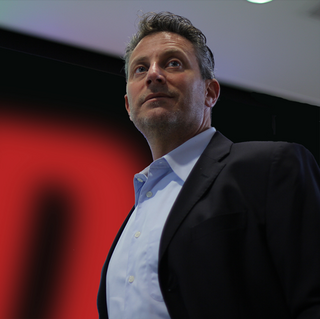 W
WBehavioral economics studies the effects of psychological, cognitive, emotional, cultural and social factors on the decisions of individuals and institutions and how those decisions vary from those implied by classical economic theory.
 W
WA bull is a stock market speculator who buys a holding in a stock in the expectation that in the very short-term it will rise in value whereupon they will sell the stock to make a quick profit on the transaction. Strictly speaking the term applies to speculators who borrow money to fund such a purchase, and are thus under great pressure to complete the transaction before the loan is repayable or the seller of the stock demands payment on settlement day for delivery of the bargain. If the value of the stock falls contrary to their expectation, a bull suffers a loss, frequently very large if they are trading on margin. A bull has a great incentive to "talk-up" the value of their stock or to manipulate the market in their stock, for example by spreading false rumour, to procure a buyer or to cause a temporary price increase which will provide them with the selling opportunity and profit they require. A bull must therefore be contrasted with an investor, who purchases a stock in expectation of a medium-term or long-term increase in value due to the underlying performance of the company and its assets. The speculator who takes a directly opposite view to the bull is the bear, who speculates on a stock decreasing in value, having sold short. A bull market is a period during which stock market prices rise over a sustained period, therefore to the advantage of bulls.
 W
WThe denomination effect is a form of cognitive bias relating to currency, suggesting people may be less likely to spend larger currency denominations than their equivalent value in smaller denominations. It was proposed by Priya Raghubir, professor at the New York University Stern School of Business, and Joydeep Srivastava, professor at University of Maryland, in their 2009 paper "Denomination Effect".
 W
WStephen Duneier is an American professional investment manager, strategy consultant, speaker, lecturer, author, artist and Guinness World Record holder.
 W
WThe efficient-market hypothesis (EMH) is a hypothesis in financial economics that states that asset prices reflect all available information. A direct implication is that it is impossible to "beat the market" consistently on a risk-adjusted basis since market prices should only react to new information.
 W
WIn investing and finance, the low-volatility anomaly is the observation that low-volatility stocks have higher returns than high-volatility stocks in most markets studied. This is an example of a stock market anomaly since it contradicts the central prediction of many financial theories that taking higher risk must be compensated with higher returns.
 W
WMarket sentiment is the general prevailing attitude of investors as to anticipated price development in a market. This attitude is the accumulation of a variety of fundamental and technical factors, including price history, economic reports, seasonal factors, and national and world events.
 W
WMental accounting attempts to describe the process whereby people code, categorize and evaluate economic outcomes. The concept was first named by Richard Thaler. Mental accounting deals with the budgeting and categorization of expenditures. People budget money into mental accounts for expenses or expense categories. Mental accounts are believed to act as a self-control strategy. People are presumed to make mental accounts as a way to manage and keep track of their spending and resources. People also are assumed to make mental accounts to facilitate savings for larger purposes. Like many other cognitive processes, it can prompt biases and systematic departures from rational, value-maximizing behavior, and its implications are quite robust. Understanding the flaws and inefficiencies of mental accounting is essential to making good decisions and reducing human error.
 W
WIn finance, the noisy market hypothesis contrasts the efficient-market hypothesis in that it claims that the prices of securities are not always the best estimate of the true underlying value of the firm. It argues that prices can be influenced by speculators and momentum traders, as well as by insiders and institutions that often buy and sell stocks for reasons unrelated to fundamental value, such as for diversification, liquidity and taxes. These temporary shocks referred to as "noise" can obscure the true value of securities and may result in mispricing of these securities, potentially for many years.
 W
WProspect theory is a theory of behavioral economics and behavioral finance that was developed by Daniel Kahneman and Amos Tversky in 1979. The theory was cited in the decision to award Kahneman the 2002 Nobel Memorial Prize in Economics.
 W
WIn economics and finance, risk aversion is the tendency of people to prefer outcomes with low uncertainty to those outcomes with high uncertainty, even if the average outcome of the latter is equal to or higher in monetary value than the more certain outcome. Risk aversion explains the inclination to agree to a situation with a more predictable, but possibly lower payoff, rather than another situation with a highly unpredictable, but possibly higher payoff. For example, a risk-averse investor might choose to put their money into a bank account with a low but guaranteed interest rate, rather than into a stock that may have high expected returns, but also involves a chance of losing value.
 W
WEldar Shafir is an American behavioral scientist, and the co-author of Scarcity: Why Having Too Little Means So Much. He is the Class of 1987 Professor in Behavioral Science and Public Policy; Professor of Psychology and Public Affairs at Princeton University Department of Psychology and the Princeton School of Public and International Affairs.
 W
WRobert James Shiller is an American economist, academic, and best-selling author. As of 2019, he serves as a Sterling Professor of Economics at Yale University and is a fellow at the Yale School of Management's International Center for Finance. Shiller has been a research associate of the National Bureau of Economic Research (NBER) since 1980, was vice president of the American Economic Association in 2005, its president-elect for 2016, and president of the Eastern Economic Association for 2006–2007. He is also the co‑founder and chief economist of the investment management firm MacroMarkets LLC.
 W
WThe St. Petersburg paradox or St. Petersburg lottery is a paradox involving the game of flipping a coin where the expected payoff of the theoretical lottery game approaches infinity but nevertheless seems to be worth only a very small amount to the participants. The St. Petersburg paradox is a situation where a naive decision criterion which takes only the expected value into account predicts a course of action that presumably no actual person would be willing to take. It is related to probability and decision theory in economics. Several resolutions to the paradox have been proposed.
 W
WA stock market bubble is a type of economic bubble taking place in stock markets when market participants drive stock prices above their value in relation to some system of stock valuation.
 W
WIn economics and business decision-making, a sunk cost is a cost that has already been incurred and cannot be recovered. Sunk costs are contrasted with prospective costs, which are future costs that may be avoided if action is taken. In other words, a sunk cost is a sum paid in the past that is no longer relevant to decisions about the future. Even though economists argue that sunk costs are no longer relevant to future rational decision-making, in everyday life, people often take previous expenditures in situations, such as repairing a car or house, into their future decisions regarding those properties.
 W
WRichard H. Thaler is an American economist and the Charles R. Walgreen Distinguished Service Professor of Behavioral Science and Economics at the University of Chicago Booth School of Business. In 2015, Thaler was president of the American Economic Association.
 W
WAmos Nathan Tversky was an Israeli cognitive and mathematical psychologist and a key figure in the discovery of systematic human cognitive bias and handling of risk.
 W
WThe Volfefe Index was a stock market index of volatility in market sentiment for US Treasury bonds caused by tweets by former President Donald Trump.